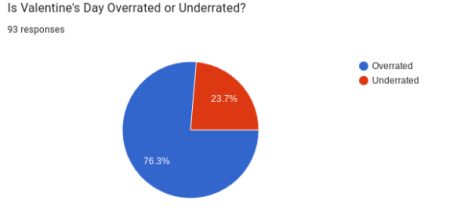Reruns and reboots: should our favorite shows be left alone?
May 10, 2021
In the past decade, T.V. companies like ABC, NBC and CBS have rebooted many fan favorites from “Arrested Development” to “Roseanne” and the “Gilmore Girls”– but not every reboot has done as well as the original.
In a February 2020 article written by Neal Justin for the Star Tribune titled “Why T.V. is obsessed with rebooting your favorite shows,” Justin writes, “Either Hollywood is running low on fresh ideas or viewers have an unprecedented appetite for nostalgia. The gatekeepers are betting on the latter.”
I’d say Hollywood definitely appears to be running low on fresh ideas. Sure, rebooting popular shows would be an easy way for companies to make money, but wouldn’t T.V. fanatics want to see new, enticing plots on their screens?
“I personally don’t think it’s worth trying to recreate an original that won’t be half as good just to make extra money for the studio,” Meghan Matthys, junior, said.
With CBS announcing a reboot of “Criminal Minds” in the works, a popular crime show that ran from 2005-2020, fans were buzzing with excitement over the thought of seeing their favorite characters taking down psychopaths yet again.
After running for 15 years, however, will the show feel like it’s been dragged on? Are reboots like this really needed?
Being a person who’s seen all of “Criminal Minds,” I will definitely admit that I was sad to see the show end. However, the thought of it continuing not long after its finale seems a bit ridiculous; as much as I love all 324 episodes, shows going on for that long shouldn’t be rebooted.
Other MHS students, like sophomore Tommy Van Eycke, also said shows shouldn’t be rehashed.
“The only reason that companies will reboot a show is if it was successful in its time, and they are fresh out of ideas,” Van Eycke said.
According to Justin’s article on the Star Tribune, a strategy used by companies to attempt to attract viewers with a “staggering number of options” is by using “time-tested titles.” To some degree, it has worked: reboots of shows like “Queer Eye” and “American Idol” have done well enough to stay on the air.
“If the show was popular, it should be rebooted as it was made for an audience and should continue to air for its fans,” Abigail Echtenacher, sophomore, said.
However, when the popular 80s/90s show “Full House” was brought back in 2016, critics scored it at 42 percent and claimed it was “lazily thrown together,” as stated in a September 2019 article by Travis Clark on Business Insider titled “27 notable T.V. reboots and revivals, ranked from worst to best.”
“Some shows like ‘90210’ and ‘Full House’ were so specific to their time period,” Social Studies Teacher Patrick Gaughan said. “They captured 1990s trends and culture, but this format does not translate to modern day.”
The other show mentioned by Gaughan, a 90s favorite titled “Beverly Hills 90210,” which was rebooted in 2008, was given a 43 percent by critics and 35 percent by audiences, as stated in the Business Insider article.
“Although some reboots can flop and fail (like the “Star Wars” sequel trilogy in many fans’ opinion), it provides a great learning experience [for] people learning how to film,” sophomore Neil Martin said.
Even with a handful of successful T.V. reboot examples, companies should be putting their efforts into creating new, fresh shows instead of the risk of a reboot flop. Although the idea of rebooting a show seems exhilarating, the spark and excitement of the original may no longer be there.
